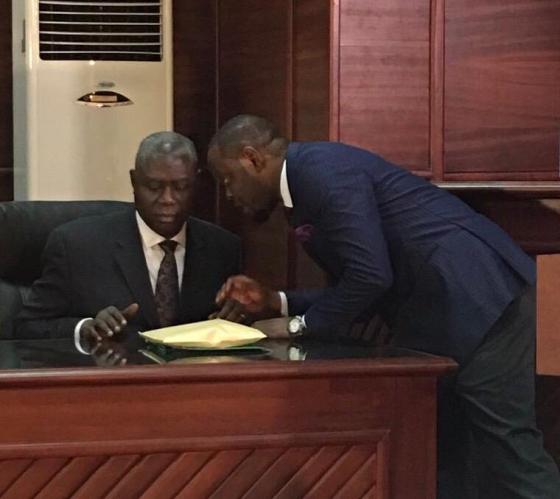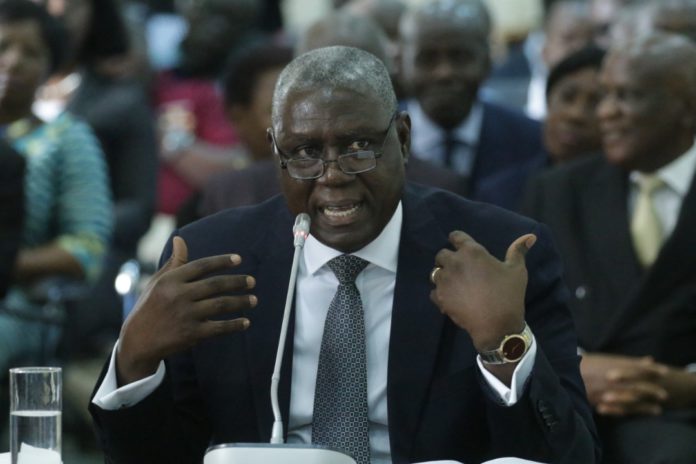
Is the Electoral Commission Independent of the Duty to be Reasonable?



I’m not sure if His Lordship, Justice Anin Yeboah, has been sworn in as CJ yet. Be that as it may, he will be the most challenged CJ in our history. And, his challenges will not be about whether, going forward, lawyers should wear Kente, Gigi, Fugu, raffia skirts or horse hair wigs to court. It may not even be about legal education.
His first challenge will be the much needed reconfiguration of the entire national structure of the judiciary. It is under him that the 6 new regions, their resulting districts and other administrative sub-structures will be fully integrated into and properly aligned with the existing judicial structure.
In doing this, His Lordship may do one of two things. He may decide to be a business-as-usual leader and just extend or replicate the sluggish and inefficient structure already in place to cover the new regions. Alternatively, His Lordship may choose to explore beyond the boundaries of the box, and do something radically new – like injecting some significant dose of paralegalism into the justice system, championing the importation of an epistolary jurisdiction, etc.
If he goes in for the first option, nothing apart from the cost of justice – money, time and effort – will see an increase. If, however, he decides to be the much-needed reformer (even if not exactly a revolutionary) and go in for option 2, he can reduce the cost of justice and, thereby, improve access considerably.
Whichever way, this will require a careful establishment of courts and a very speedy construction and terrific upgrade of court facilities. It will need a more decisive improvement of the conditions of service of the men and women on whose back the justice system grinds – the Judicial Service’s staff. Indeed, it will also need an extremely diligent and nuanced assignment of judges to courts – the right judge to the right court.
It is true that a lot of judges have already been appointed or promoted in the last legal term in anticipation of this restructuring. But it is also true that challenges in justice administration are not particularly resolved by beefing up the number of judges or courts. That’s because the appointment or promotion of judges in themselves also come with their own peculiar challenges.
The most primary challenge in this regard is the reassignment of cases and judges. The last time such a large scale movement of cases or judges occurred was the relocation of some few high courts into the Atta Mills Court Complex. That exercise was a brutal nightmare for users of the justice system – for months, no real work happened in court rooms.
But that was in respect of only some few courts in Accra Central alone. It didn’t even extend to Tema. Troublingly, that which stares the new CJ straight in the eye is a nationwide reassignment of poorly kept court records and dockets to a relatively large army of newly appointed or promoted judges.

This week, the new legal term will kick off. With the new assignments imminent, waste upon wastes will be committed for many reasons. One of such reasons stands out rudely and unashamedly – the concept of trial de novo. Simply put, the concept requires trials to commence anew whenever a new judge takes over the case for whatever reason. The Supreme Court has tamed the concept to some extent. But a lot needs to be done.
All this wouldn’t be a problem if the judiciary and the justice system had been moving with the times. The truth, however, is that they have hardly moved on since Sir Guggisberg’s judicial reforms. For example, the Chief Justice still personally receives and hears petitions from litigants on minute court processes such as issues concerning the content of a case docket.
Uphill though these challenges may be (and His Lordship is very much aware), they present an exceptionally bright opportunity for CJ Yeboah to erect himself as the administrative head of our judiciary who reformed Ghana’s judiciary and, thereby, saved Ghana’s democracy. For the judiciary he will inherit is reeling under a heavy cocktail of ills – inefficiency, ineffectiveness, public distrust, poverty, etc.
Thankfully, age is on His Lordship’s side. But age, as a natural resource, means nothing unless it is in a marriage with some relevant man-made resources. His Lordship will go down in history as the lead-architect of a renewed justice system for our beloved country. But before he achieves that he probably will have to master two things – the art of delegation and the science of institutionalisation.